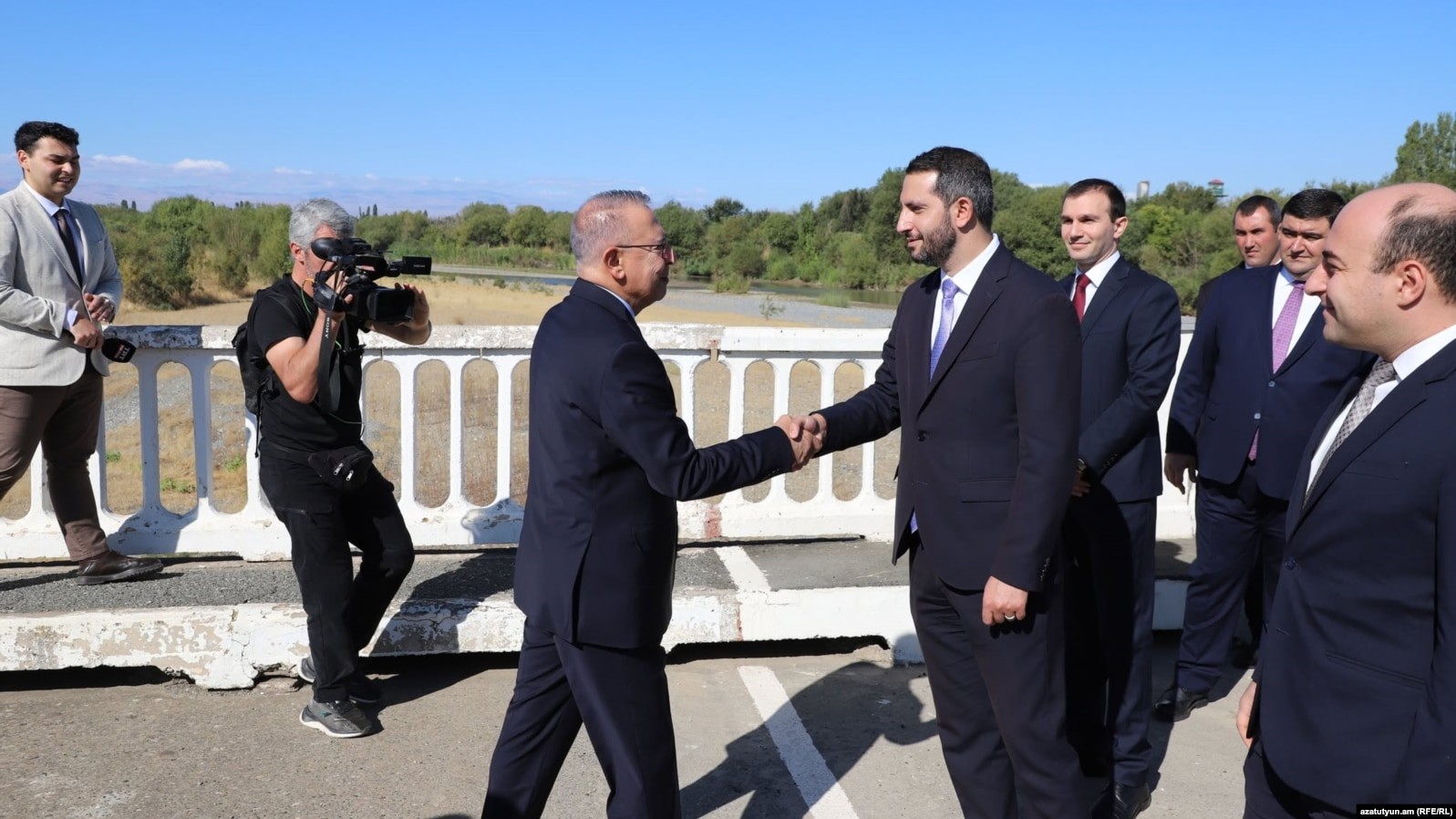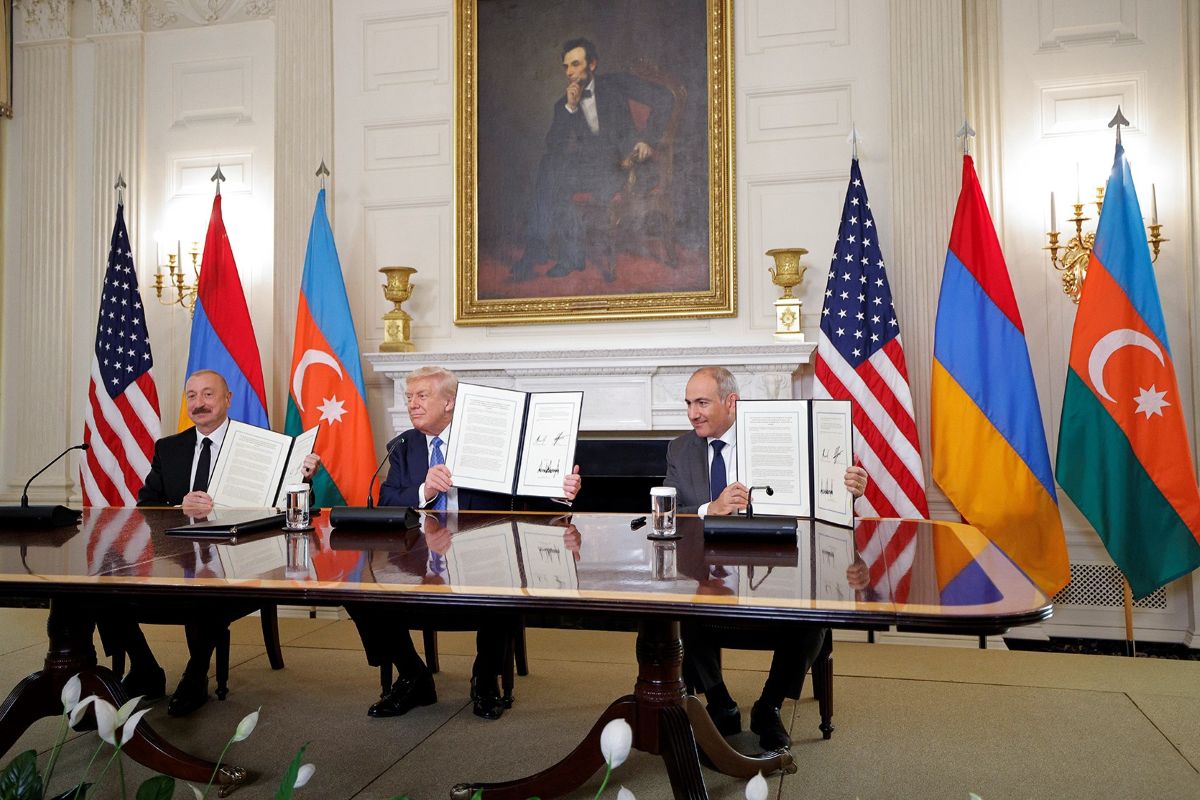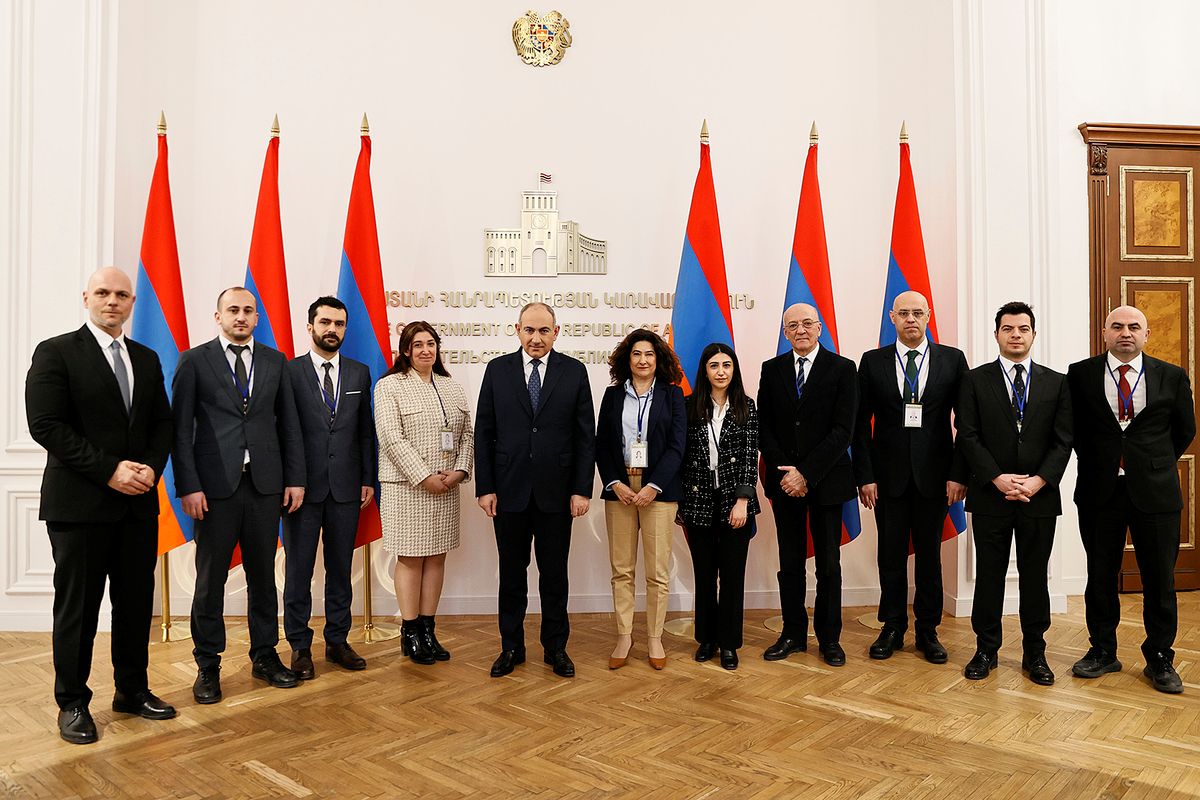Is normalization of Armenian-Turkish relations possible without Baku?
Mirzoyan and Fidan hold remote talks
Armenian Foreign Minister Ararat Mirzoyan responded to a statement by his Turkish counterpart, stressing that Yerevan considers both the establishment of diplomatic relations with Ankara and the opening of the border, as well as the institutionalization of peace with Baku, to be important.
“Armenia is making sincere efforts on both fronts. However, neither of these two components depends on the other,” Mirzoyan said.
Earlier, Hakan Fidan confirmed once again that Turkey links these processes to the establishment of a “final peace” between Armenia and Azerbaijan.
“If we normalize relations now, Armenia will lose its main incentive to sign a peace agreement with Azerbaijan. This could lead to a frozen conflict in the region, which we do not want,” Fidan said.
He also assured that the Turkish side has carried out some technical preparations and is practically ready to open the border.
Responding to Fidan, the Armenian minister said: “If we try to see a causal link between normalization with Turkey and the signing of a peace agreement with Azerbaijan, we may find that full normalization with Turkey does not harm but, on the contrary, positively affects the process of normalizing relations between Armenia and Azerbaijan.”
More on the remote exchanges between Yerevan and Ankara, as well as the visit of Armenian MPs to Istanbul and their meeting there with the Azerbaijani delegation.
- ‘Coming months will be decisive for Armenia’s future’ — Garo Paylan
- ‘Armenia expects concrete steps from Turkey’: what was achieved and what’s still possible
- Pashinyan says Armenia’s normalisation with Turkey is nearing
Turkey’s foreign minister on obstacles to signing peace agreement
Speaking in the Turkish parliament, Hakan Fidan stressed that Ankara will not open its border with Armenia until a peace agreement is signed between Armenia and Azerbaijan.
He said the issues of the “Zangezur corridor” and Armenia’s constitution are not included in the Washington documents.
Fidan added: “Once these issues are resolved and a final peace is established between Armenia and Azerbaijan, we will take our step.”
Turkish lawmakers also asked Fidan about the “Trump Route” project.
The “Trump Route” is a road intended to connect Azerbaijan with its Nakhchivan exclave through Armenian territory. For several years, Yerevan and Baku struggled to reach an agreement on this issue. Azerbaijan demanded a road it referred to as the “Zangezur corridor.”
Armenian authorities said they were willing to unblock all roads but rejected the term “corridor,” arguing it implied a loss of control and sovereignty over the territory. Only on 8 August in Washington did the parties agree that the road would remain under Armenia’s sovereign control. The United States would participate in the unblocking process as a business partner. As a result, they named the project the “Trump Route,” after the mediator who helped reconcile the disagreement.
However, Fidan returned to the topic of the “Zangezur corridor.” He said that Yerevan and Baku have not yet reached a final agreement on this issue. The parties are still negotiating, and Ankara is only acting as a facilitator.
“When people criticise us over the Zangezur corridor, it gives the impression that we control it. We do not,” he said. “This is Armenian territory, and Azerbaijan is the claimant. We act as a mediator for both sides because we also need this road.”
The Turkish foreign minister emphasised the corridor’s strategic importance. He added that US President Donald Trump also raised the issue during discussions in Washington.
“The initial adoption of the corridor concept was crucial for Azerbaijan’s national interests. Let me clarify: several questions remain unresolved. In particular, it is unclear what form the corridor will take, who will operate it, and who will act as partners,” he said.
Officials in Yerevan have pointed out that the project is called the “Trump Route,” not a “corridor.”
In response to the statement by Turkey’s foreign minister, Armenia’s prime minister stressed that only Armenia has the right to name infrastructure located on its territory.
“In Armenia, there is the ‘Crossroads of Peace’ project [for unblocking regional transport links] and TRIPP [the ‘Trump Route’]. Any other terminology does not concern the Republic of Armenia,” said Nikol Pashinyan, referring to the agreements reached in Washington.
Armenia’s foreign minister, Ararat Mirzoyan, in turn, offered clarifications. He also listed the principles embedded in the Washington project for unblocking transport infrastructure. According to him, these include:
- territorial integrity,
- inviolability of borders,
- sovereignty,
- jurisdiction,
- reciprocity.
“Within these principles, the TRIPP route will connect both Azerbaijan with Nakhchivan and Armenia with other countries and regions across a wider geography — through Armenia and Azerbaijan. “Armenia is actively making efforts and will implement it swiftly,” Mirzoyan said.
Visit to Istanbul: what Armenian MPs expect
Alongside these remote discussions, an Armenian parliamentary delegation visited Turkey. The MPs took part in the 23rd autumn session of the OSCE Parliamentary Assembly.
Sargis Handanyan, chair of the Foreign Relations Committee, conveyed an optimistic tone on behalf of the Armenian delegation. He said the process of normalising Armenian-Turkish relations is likely to bring positive results soon.
“Constructive and active political dialogue gives hope that it will soon lead to institutionalised relations, open borders, and broader cooperation,” he said.
In Istanbul, the delegation also met members of the Azerbaijani delegation. The MPs discussed prospects for regional peace, including the issue of reopening communications.
“Our discussions on unblocking regional transport links have now taken on a very practical character. We also addressed steps to implement the TRIPP route under Armenia’s ‘Crossroads of Peace’ initiative. It will benefit not only the South Caucasus but also carry global significance, connecting Central Asia with Europe,” Handanyan said during one of the sessions.
Mirzoyan and Fidan hold remote talks
Mirzoyan and Fidan hold remote talks





















